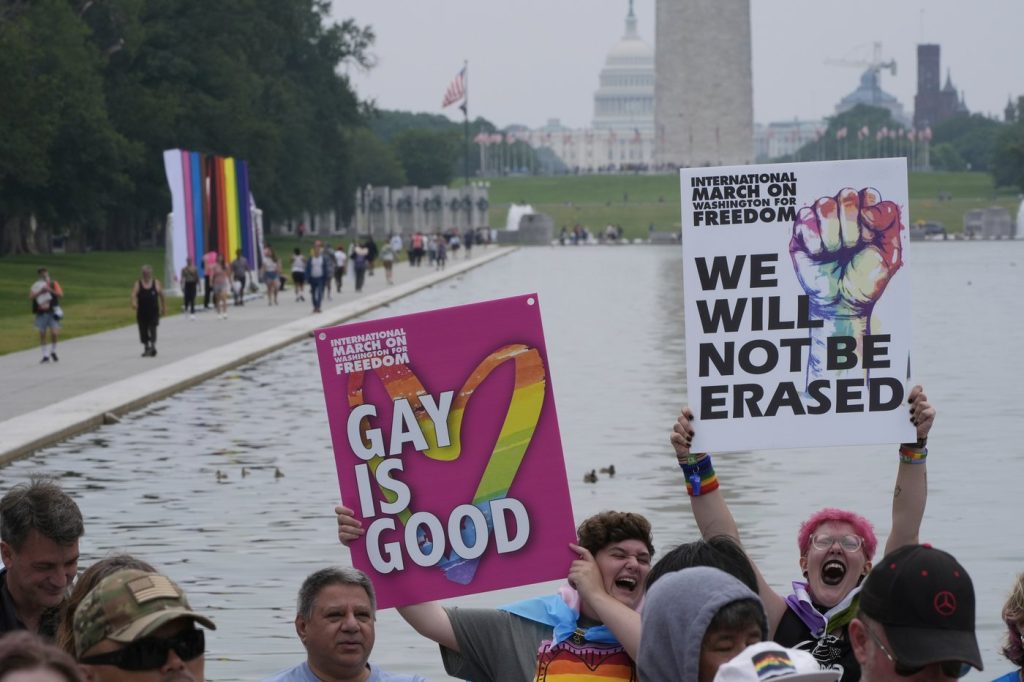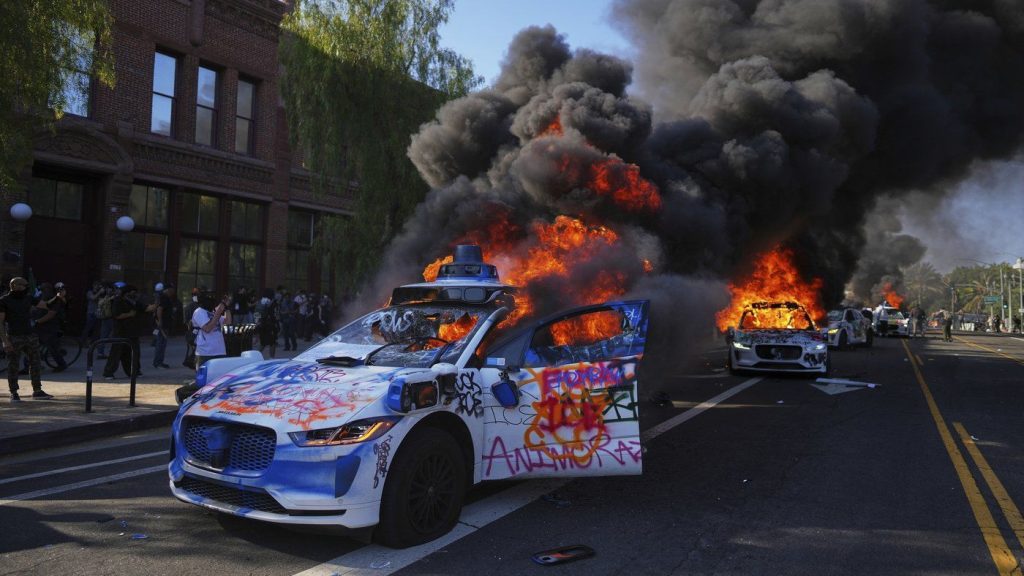Washington (AP) — Following the vibrant celebrations of Saturday's World Pride parade, the final day of World Pride 2025 in the nation's capital commenced under much grimmer circumstances. Thousands congregated at the Lincoln Memorial on Sunday morning for a rally and protest march, as the LGBTQ+ community rallies its strength in anticipation of challenges expected during President Donald Trump’s second administration.
Ashley Smith, board president of Capital Pride Alliance, emphasized the gravitas of the occasion, stating, "This is not just a party. This is a rally for our lives." Smith pointed out that international attendance for this bi-annual event has noticeably decreased, with many potential visitors choosing to refrain from traveling to the U.S. due to concerns over harassment or in protest of Trump's policies. Smith declared, "That should disturb us and mobilize us."
The rally saw enthusiastic support for LGBTQ+ activists, with participants waving traditional Pride flags alongside those representing transgender, bisexual, intersex, and other communities. Many attendees adorned their faces with rainbow glitter and wore signs that read "Fight back," "Gay is good," "Ban bombs not bathrooms," and "We will not be erased." The atmosphere was charged with emotions as demonstrators expressed solidarity and resolve against the backdrop of Trump's policies, particularly his campaign against transgender protections and his criticisms of drag shows, exacerbating anxieties within the community.
Among the attendees was Tyler Cargill, who wore an elaborate outfit topped with a replica of the U.S. Capitol building, asserting, "Trans people just want to be loved. Everybody wants to live their own lives, and I don’t understand the problem with it all." Wes Kincaid traveled approximately six hours from Charlotte, North Carolina, emphasizing the significance of showing up for the community, stating, "It’s more important than ever to show up for our community."
Signs of economic distress were evident, as attendees waved banners incorporating large rainbow flags with USAID insignia or expressed their status as "Proud gay federal workers." Warnings surrounding potential violence during the World Pride events lingered due to Trump's rhetoric. Concerns about disruptions from groups like the Proud Boys prompted organizers to establish security fencing around the designated celebration and rally areas. While the anticipated violence largely did not materialize, there were reports of vandalism at a queer bar earlier that week, and some incidents of violence, including stabbings and a shooting near Dupont Circle, raised worries among participants.
The weather took a turn for the worse as rain began falling around noon, prompting speakers to shorten their remarks as the crowd prepared to march. Some attendees left while others sought shelter under umbrellas. However, one speaker reminded the audience, "Rain will not stop us, and after rain comes rainbows." The rally’s discourse did not solely target the Trump administration; speakers also directed criticisms toward Democratic politicians, accusing them of failing to support the LGBTQ+ movement effectively. Tyler Hack of the Christopher Street Project stated, "We have to call out people who have abandoned our movement," emphasizing the need for unconditional support for the trans community.
As the main march progressed toward the U.S. Capitol, a separate contingent diverged, displaying a "TRUMP MUST GO NOW" banner. Nevertheless, many who braved the poor weather emphasized the importance of their presence amid challenging conditions. Gillian Brewer, a university student from Silver Spring, Maryland, remarked on the resilience of the attendees, saying, "People are still out here, despite the rain, despite their exhaustion. We’re not going anywhere." Brewer expressed frustration at the turnout, noting it was lower than the previous day's parade, which she chose to skip in favor of attending the protest, declaring, "This is more important. You can party all you want, but at the end of the day, the protest is why we can party." Natalie Farmer, who traveled from San Diego with her wife, attributed the lower numbers at the march to the fatigue stemming from Saturday evening's celebrations and affirmed, "Some of us have to do the rallying to keep the party going."












